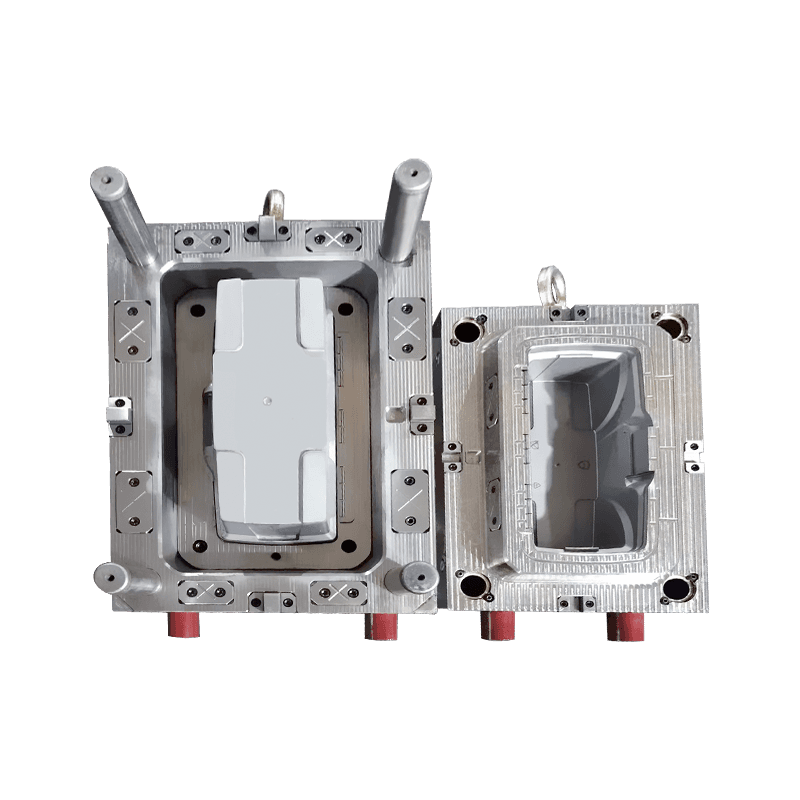We are committed to providing customers with high-quality, precision mold solutions.
Toolbox Molds
Cat:Toolbox And Accessories Mold
Toolbox molds encompass a variety of types designed to produce different styles and sizes of toolbox...
See Details
In the world of manufacturing, molds play a crucial role in shaping the final product. Two types of molds that are often discussed in the industry are Toolbox Shell Molds and Die Casting Magnesium Aluminum Alloy Molds.
Toolbox Shell Molds are specifically designed for the production of toolbox shells, which are essential components in various industries, including automotive, construction, and home improvement. These molds are known for their precision and durability, ensuring that the toolbox shells produced are of high quality and can withstand the rigors of daily use.
Introduction to Die Casting Magnesium Aluminum Alloy Molds
Die Casting Magnesium Aluminum Alloy Molds, on the other hand, are used for the production of lightweight and high-strength components made from magnesium aluminum alloy. This mold type is favored in industries where weight reduction and material strength are critical, such as aerospace, automotive, and electronics.
Material Comparison
The primary material used in Toolbox Shell Molds is typically steel, which provides the necessary strength and durability for the molds to withstand the pressures of the injection molding process. In contrast, Die Casting Magnesium Aluminum Alloy Molds are made from specialized alloys designed to withstand the high temperatures and pressures associated with die casting.
Design and Complexity
Toolbox Shell Molds often feature complex geometries to accommodate the various features of a toolbox, such as handles, hinges, and latches. The design of these molds requires a high level of precision to ensure that each component fits together seamlessly. Die Casting Magnesium Aluminum Alloy Molds, while also requiring precision, may not always have the same level of geometric complexity, but they must be designed to allow for the rapid cooling and solidification of the magnesium aluminum alloy.
Manufacturing Process
The manufacturing process for Toolbox Shell Molds involves several steps, including design, CNC machining, and heat treatment. The molds must be designed to exact specifications and then machined to achieve the desired level of precision. Heat treatment is often used to enhance the durability and strength of the molds.
Die Casting Magnesium Aluminum Alloy Molds also undergo a detailed manufacturing process, which includes design, CNC machining, and surface treatment. The molds must be designed to facilitate the flow of molten magnesium aluminum alloy and to ensure even cooling and solidification. Surface treatments may be applied to improve the mold's resistance to wear and corrosion.
Heat and Cooling Systems
One of the critical aspects of both Toolbox Shell Molds and Die Casting Magnesium Aluminum Alloy Molds is the heating and cooling systems. For Toolbox Shell Molds, the heating system ensures that the mold reaches the temperature for the injection molding process, while the cooling system rapidly cools the mold to solidify the plastic. In the case of Die Casting Magnesium Aluminum Alloy Molds, the heating system is crucial for maintaining the high temperatures required for die casting, and the cooling system must efficiently manage the heat transfer to solidify the alloy.
Precision and Tolerance
Both Toolbox Shell Molds and Die Casting Magnesium Aluminum Alloy Molds require a high degree of precision and tight tolerances. The molds must be manufactured to exact specifications to ensure that the final product meets the desired quality standards. This precision is achieved through advanced machining techniques and stringent quality control measures.
Application and Industry Usage
Toolbox Shell Molds are primarily used in the production of toolboxes and similar storage solutions. They are commonly found in industries that require durable and reliable storage solutions, such as automotive, construction, and DIY markets.
Die Casting Magnesium Aluminum Alloy Molds are used in a variety of applications where lightweight and high-strength components are needed. This includes the aerospace industry for aircraft components, the automotive industry for engine parts and body panels, and the electronics industry for cases and housings.
Cost and Economic Factors
The cost of Toolbox Shell Molds and Die Casting Magnesium Aluminum Alloy Molds can vary depending on the complexity of the design, the materials used, and the manufacturing process. Generally, Die Casting Magnesium Aluminum Alloy Molds may be more expensive due to the specialized materials and processes involved. However, the cost-effectiveness of each mold type must be evaluated based on the specific requirements of the application.
Contact Us